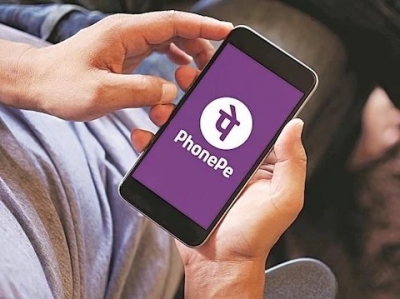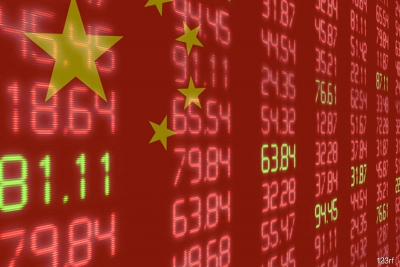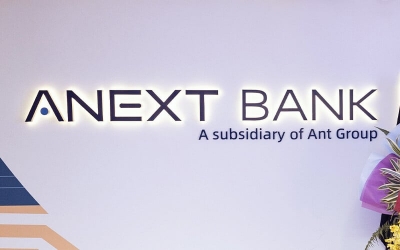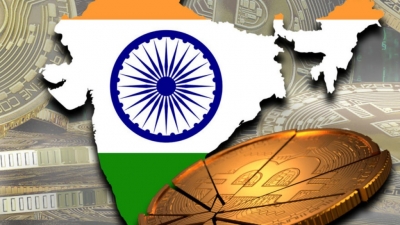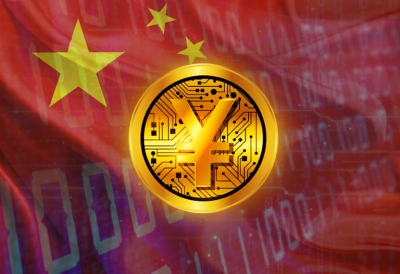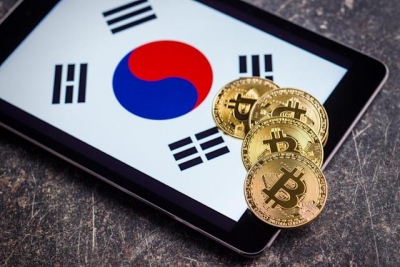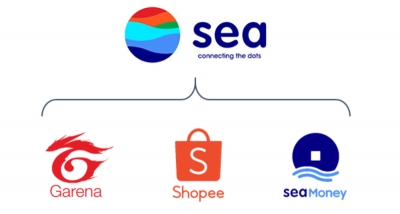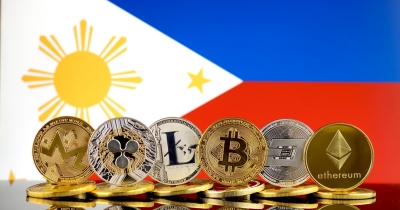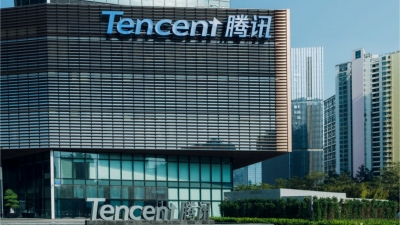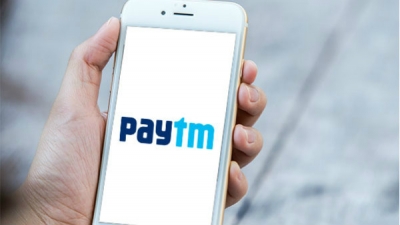China has been cracking down on fintech in one form or another since September 2017 when it set out to clip the wings of its then flourishing cryptocurrency industry. Next up on the chopping block was peer-to-peer (P2P) lending. Both industries are shells of their former selves, which suits Beijing just fine given their risk profiles. However, the crackdown on China’s systemically important tech companies has had ripple effects in the broader economy and China’s leadership recently signaled that a change of direction may be near.
Alipay reduces stake in Kakao Pay
2022 is turning out to be the year that Asia’s super apps must swallow their pride. For Korea’s Kakao, whose digital bank became the country’s most valuable lender following its IPO in August 2021, the fall from grace has been swift and painful. Both Kakao Bank and the company’s payments arm Kakao Pay have struggled with falling market capitalizations since late 2021, while a scandal in which Kakao Pay executives swiftly sold off their shares in the company after the IPO undermined public trust in the Kakao brand. Ant Group’s decision to reduce Alipay's stake in Kakao Pay has dealt another blow to the Korean platform company.
Assessing PhonePe’s IPO prospects
Walmart-backed PhonePe is one of the most prominent payment firms in India. It holds the largest share of India’s paramount UPI payments platform of any company, with 47% of the market compared to Google Pay’s 34%. PhonePe says it has 380 million registered users, which means that one in four Indians use its services. The company also serves 30 million offline merchants. With pressure to achieve profitability increasing and investors eager for a successful exit, speculation is mounting about when PhonePe will decide to go public.
Fintech funding in Asia appears headed for a sharp slowdown amid an uncertain global economic outlook. However, Pakistan remains a bright spot in the region, benefiting from its extremely low baseline compared to the region’s other major emerging markets. Indeed, startup funding in Pakistan reached a record US$350 million in 2021, while in India it reached an all-time high of US$38.5 billion. In 2022, despite the shaky global economy, Pakistan may surpass last year’s record. As of May, Pakistani startups had already raised US$167 million.
How are Chinese firms’ IPOs changing?
During China’s long tech boom, private investors availed themselves of the abundant opportunities afforded by Chinese IPOs, whether onshore, in Hong Kong or in New York. Yet with Beijing’s crackdown on the tech sector and persistent U.S.-China tensions, Chinese IPOs are going in a very different direction.
Chinese fintech giant Ant Group announced the soft launch of its Singapore digital bank ANEXT with fanfare earlier this month. The announcement came nearly three years after the Monetary Authority of Singapore (MAS) said it would issue up to five digital banking licenses. Now that ANEXT has finally gone live, it is worth assessing its prospects. The bank holds a digital wholesale banking (DWB) license, which allows it to serve non-retail customers only. ANEXT plans to develop an open framework for financial institutions together with MAS-backed Proxtera, a hub connecting B2B marketplaces, trade associations and service providers. While Ant has high hopes for ANEXT’s potential to serve SMEs in Singapore, it is likely to face some significant challenges in the city-state’s ultra-competitive financial services market.
Australians lost AU$113 million (US$81.5 million) to crypto investment scams in the first five months of 2022, according to new data from ScamWatch cited by consumer watchdog the Australian Competition and Consumer Commission (ACCC). The ACCC noted that most of the reported losses, which occurred in the January 1 to May 1 period, were investment scams, and they rose by 314% (including non-crypto scams) compared to the same period last year. This situation underscores the need for Australia to implement comprehensive regulation for digital assets, as crypto use among Aussies continues to rise steadily.
In Asia, US Big Tech is struggling with fintech
The United States’ largest tech companies have a significant presence in most Asian markets, whether Microsoft in software, Google for search, Facebook as a social media platform or Amazon in e-commerce. However, most U.S. tech giants have largely yet to make much of an impact in Asia’s burgeoning fintech scene.
Is GoTo on the right track?
Asia’s platform companies had a great run, but amid a shaky global economy they have no choice but to make substantive changes to their business models. For most of these companies, the biggest problem is that they do not make enough money to offset their costs. Until very recently their primary focus was on user numbers rather than profitability. Indonesia’s GoTo, despite some strong fundamentals working in its favor, probably will have to undergo a painful transition if it expects to thrive in the long term.
The sky may be the limit for Philippine digibanks
While digital banks are all too often hyped, in the Philippines’ case online lenders truly have a large market opportunity. Incumbents have limited reach and there is a large unbanked population, estimated at 47% of adults (31.5 million people) as of early 2021 by Bangko Sentral ng Pilipinas (BSP), the Philippine central bank. Of the 53% with bank accounts, there is undoubtedly a considerable underbanked population. The Philippine digibank Tonik reckons that the country’s retail savings market is valued at up to US$140 billion and its unsecured consumer lending market at US$100 billion.
India's crypto market is hurting
It has not been the best few months for India’s cryptocurrency market. New tax legislation is putting a damper on trading and investment, which are also taking a beating amid a broader crypto bear market. At the same time, fintech funding in India may finally dry up – a least for a while – as investors tighten their belts.
Asia could be headed for a fintech funding slowdown
For several years, the Asia-Pacific region has been a hotbed of fintech funding. Despite, or perhaps because of the coronavirus pandemic, fintechs have had very little trouble raising cash. After all, when the whole economy is moving online, banking needs be digital too. However, shaky global economic and geopolitical conditions appear to be finally starting to weigh on Asia fintech funding, with the second quarter seeing a clear drop-off in big-ticket fundraising.
Will digital banks be disruptive in Thailand?
In August 2021, The Bangkok Post ran an article entitled “Thailand ripe for a digital banking battle” that captured the conventional wisdom about the prospects for online lenders in the kingdom, which is that there is a significant market opportunity for them due to lagging digitization among incumbents rather than the existence of a significant unbanked population. About 82% of Thais have a bank account, though by one estimate 48% of the population is underserved. Yet the opportunity for digital banks could be shrinking as big traditional lenders accelerate digital transformation and the government introduces real-time retail payments possible with only a mobile number.
How is renminbi internationalization evolving?
Internationalization of the renminbi has taken a different path than what seemed likely when the process began in the early 2010s. At the time, many observers expected China would gradually open its capital account and allow its currency to float freely. These steps were seen as integral for China to achieve a commensurate status in the international financial system that it already enjoys in the global economy. Yet political considerations have increasingly outweighed financial ones, and renminbi internationalization is instead evolving inside a less open ecosystem than expected.
The digitization of financial services in Taiwan has dovetailed with rising online scams, but compared with many other economies, Taiwan did not experience a surge in such illicit activity for most of the pandemic. The reason is that Taiwan adhered to a de facto zero-Covid policy that kept infections down for more than two years. It was only in the past few months when the hyper-infectious omicron variant penetrated Taiwan’s defenses amid a wobbly global macroeconomic environment that online financial crime began to skyrocket.
When will India launch the digital rupee?
In February, Indian finance minister Nirmala Sitharaman said that the Reserve Bank of India (RBI) would launch a central bank digital currency in the 2022-23 fiscal year. In her budget speech, she said that introducing a digital rupee would give a big boost to the digital economy and lead to a more efficient and cheaper currency management system. Yet since then, there has been no obvious progress on India’s CBDC project, and even some measured pushback against the idea.
P2P lending in Indonesia has a way forward
Slowly but surely, peer-to-peer (P2P) lending is becoming a sustainable and regulated industry in Indonesia. A recent regulatory crackdown aimed at consolidating the sector into a smaller number of compliant, above-board firms has borne fruit. Unlike China, Indonesia has decided that P2P lending can serve a legitimate financial inclusion role. Having the benefit of hindsight, Jakarta moved to proactively regulate P2P lending.
South Korea’s new president Yoon Suk-yeol entered office planning to make his country friendlier to cryptocurrency. During his campaign, Yoon said, “To realize the unlimited potential of the virtual asset market, we must overhaul regulations that are far from reality and unreasonable.” Though Yoon likely remains keen to carry out his campaign promises about crypto, it will be no easy task. He faces conservative, crypto-skeptical financial regulators, a parliament controlled by South Korea’s main political opposition, the Democratic Party of Korea, and now the fallout over the abrupt collapse of the TerraUSD stablecoin.
Sea Group has big ambitions for Latin America
Sea Group’s share price has tanked over the past six months, falling 75% to roughly US$78. The company has underperformed in many respects, even in its profitable gaming unit Garena. As Garena’s growth slows, Sea will have even more trouble financing its unprofitable e-commerce and fintech units, unless the company finds a way to reduce costs. Yet it continues to expand aggressively in regions far from home, with Latin America a key area of focus.
Hong Kong’s virtual banks arrived at a tumultuous time in the city, facing the twin challenges of political tumult and Covid-19. However, the pandemic may have helped spur greater uptake of the online lenders’ services, especially now that Hong Kong has experienced a more severe Covid wave. Important questions remain though: How big is the opportunity in a city of 7. 4 million where 93% of people over 14 have a bank account? And is it realistic to assume that expansion to the mainland will be possible?
Platform companies have not had the best 2022, especially loss-making ones based in Southeast Asia. Amid global economic jitters, investors are souring on inflated tech valuations and stocks. We had thought Indonesia’s GoTo, with its laser focus on its massive home market and strong fundamentals, might be able to buck this trend, and at first it seemed the company might do just that. After all, its IPO was successful. But in recent weeks, the company’s share price has plummeted, mirroring the trajectories of its peers like Sea Group, Grab, Alibaba and Paytm.
It is a testament to the difficulty of establishing a viable international financial center in Asia that so many first-tier cities in the region are vying to compete with Hong Kong yet none is truly a peer competitor. Even Singapore, undoubtedly the most important fintech hub in Southeast Asia if not the entire region, cannot match Hong Kong in the capital markets space. Seoul is the latest Asian city to throw its hat in the ring to become a global financial center.
On April 29, Bank Negara Malaysia (BNM) awarded digital banking licenses to five consortia primarily led by large tech firms and incumbent financial institutions. The one exception was a consortium that includes Grab and Singtel and is co-led by Kuok Brothers, a massive conglomerate that focuses on real estate, shipping and agribusiness, among other things.

Indonesia’s digibanking sector continues to be among the busiest in Asia Pacific with a flurry of deals in recent weeks. Key deals include buy now pay later (BNPL) firm FinAccel’s purchase of a majority stake in PT Bank Bisnis Internasional and SME financing platform Funding Societies and used car marketplace Carro investing an undisclosed amount in Bank Index Selindo (Bank Index). Indonesian peer-to-peer lender Amartha is also reportedly in talks to acquire 70% of local bank PT Bank Victoria Syariah.
Crypto is making inroads in the Philippines
The Philippines is taking a different approach to crypto than many other Asian countries, most notably in a tentative acceptance of the use of decentralized digital currencies for payments. Thailand, Vietnam and Indonesia have all banned crypto for payments outright, while Singapore has licensed just a handful of companies to use digital assets for payments.
Australia’s BNPL firms face a day of reckoning
We would say that the gravy train has been derailed for Australia’s cash-incinerating buy now, pay later (BNPL) firms, but they may not be exactly right. After all, “gravy train” implies making easy money and most of these companies never made money in the first place – if our key metric is profitability. The problems for these firms are manifest, from intense competition – and especially the arrival of deep-pocketed incumbents and tech firms to the market – to looming regulation and widening losses.
India’s UPI is enjoying record-breaking growth
India’s United Payments Interface (UPI) is a bit of an anomaly in the world of fintech, which is typically dominated by high-flying startups and deep-pocketed venture capitalists. UPI was launched in 2016 by a specialized division of the Reserve Bank of India, the National Payments Corporation of India (NPCI), to create a unified real-time payments platform for the subcontinent’s retail payments. Governments are usually not seen as leading fintech innovators, but in this case, UPI has been so successful that other countries are keen to learn from its success; it is expanding internationally and India’s leading e-wallets compete for the largest share of UPI payments.
China’s fintech crackdown has slowed the domestic growth of the country’s biggest platform companies, but they remain committed to international expansion through strategic investments. Tencent has a number of key investments in Southeast Asia, Australia and UK that are worth watching, including its stakes in Sea Group, Voyager Innovations, Airwallex, Afterpay and most recently the UK fintech Previse.
Will Paytm reach profitability by 2023?
It is important to take what Paytm founder Vijay Shekhar Sharma says with a grain of salt. For many years, he has talked up Paytm’s potential and deep-pocketed backers like SoftBank and Alibaba have bought it. Yet Sharma’s bullishness has not been borne out by Paytm’s stock performance. Though Paytm’s IPO was India’s largest of all time, it nonetheless plummeted on the first day of trading in November 2021 and has since lost about 60% of its value.
More...
North Korea is stealing massive amounts of crypto
North Korea’s resilience is often surprising to outside observers. After all, Pyongyang is the only communist East Asian country to not formally launch economic reforms. It is impoverished and isolated. Further, U.S.-led sanctions imposed from the mid-2000s have made it harder for North Korea to conduct international trade. However, North Korea has developed a formidable cybercrime capability in order to evade the sanctions, and it is increasingly targeting digital assets whose decentralized nature make them vulnerable to determined hackers.
Pakistan’s fintech sector is heating up
Pakistan’s fintech sector has long been a sleeper. Investors are now awaking to the significant opportunities in a country with 100 million unbanked people (the third largest unbanked population in the world), growing smartphone penetration and internet connectivity, incumbents with a weak digital game, and government policies aimed at using digital financial technology to boost financial inclusion. With just 1% of Pakistan’s US$4 trillion in annual payments currently made digitally, the sky is the limit.
Why is crypto adoption high in Indonesia?
The use of decentralized virtual currencies is growing expeditiously in Indonesia and Southeast Asia’s largest economy has the highest crypto adoption rate in the world along with Brazil, according to a new study by crypto exchange Gemini published in early April. The report found that 41% of Indonesians aged between 18 and 75 years old with an income of more than $14,000 per year own crypto assets.
Razorpay’s B2B focus is paying off
In December 2021, Razorpay became India’s most valuable private fintech as it reached a valuation of US$7.5 billion, more than double the US$3 billion milestone it hit last April. Razorpay’s US$375 million Series F financing round raised more than all of its previous rounds combined. By eschewing India’s hyper-competitive retail payments market – dominated by the likes of Google Pay and PhonePe, with Paytm a distant third – Razorpay can best capitalize on opportunities in the fast-growing merchant payments segment.



